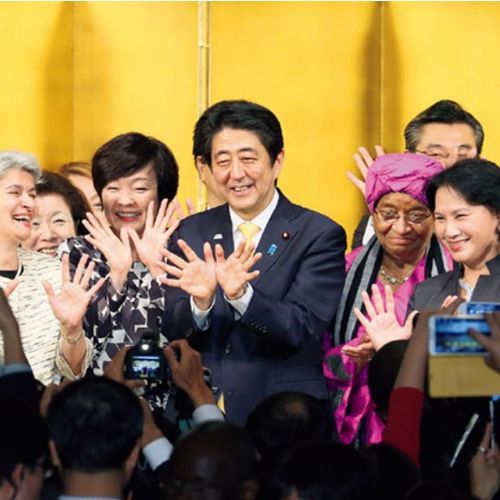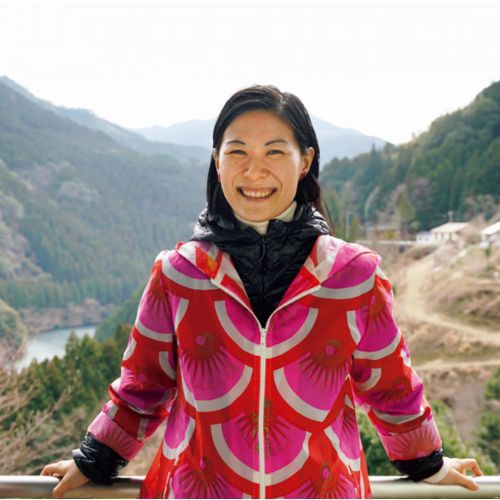Participation by women in Japanese society is being boosted by both the public and private sectors. At a seminar for women regarded as candidates for next-generation leadership positions in businesses of various types and scales, Prime Minister Abe attended the closing reception in person and offered words of encouragement.
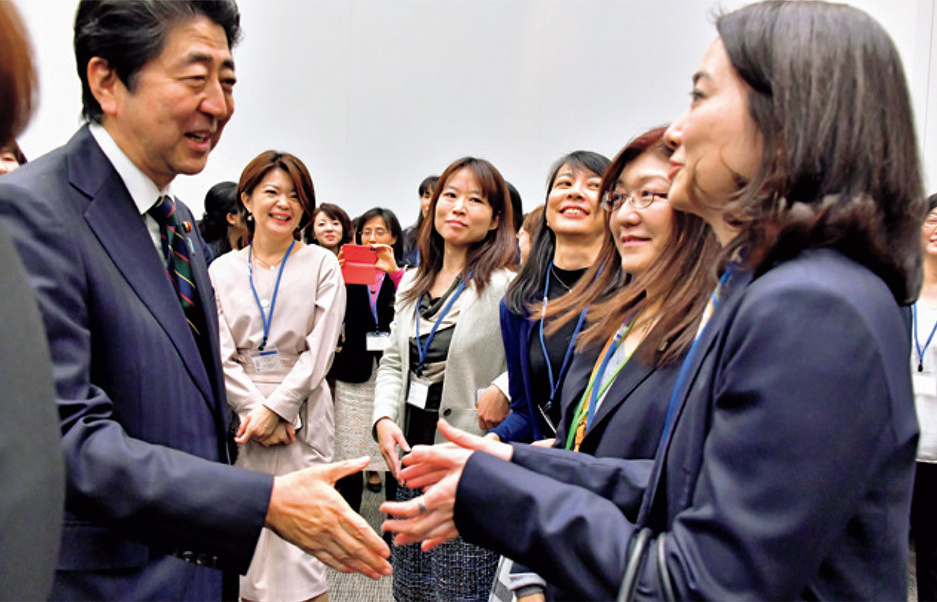
Prime Minister Abe attended the closing reception of the seminar, now in its third year.
His appearance inspired participants to “try even harder to succeed!”
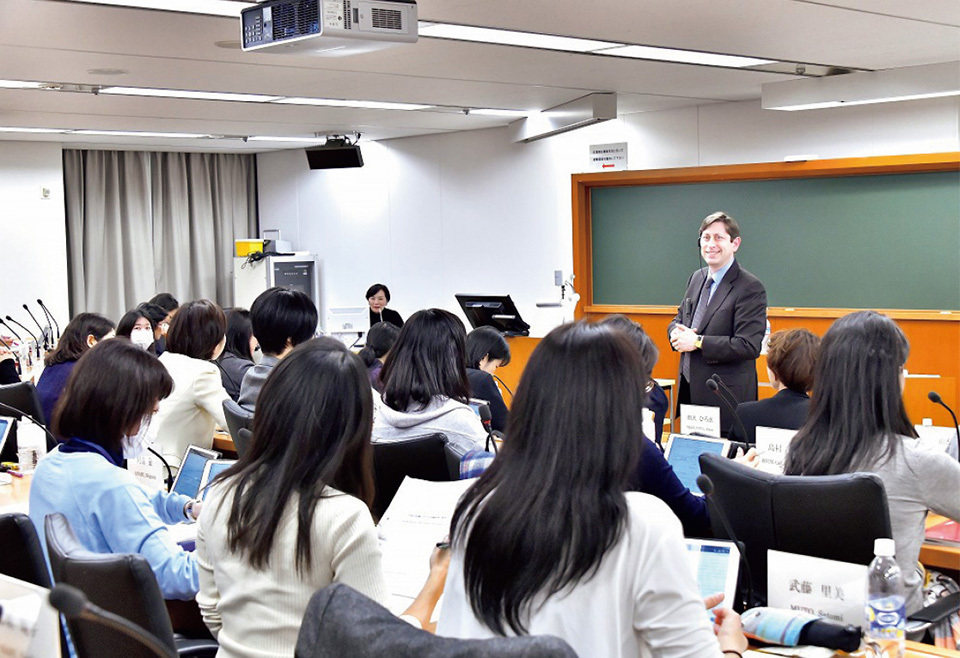
The seminar, given by lecturers from Harvard Business School, impressed participants as “confronting us with a completely different set of values,” and “broadening our perspective.”
“All the lecturers felt that ‘the attendees were excellent—as good or better than those at Harvard Business School back home.’ We hold you in great esteem, and feel confident that you will fully engage with the difficult issues that lie ahead.”
Thus with pride in his voice, Prime Minister Abe delivered a closing address to the attendees of the Executive Program for Women Leaders, held in January of this year.
During the past several years, the participation rate by women in the Japanese workforce has rapidly increased. Under governmental guidance, policies have been implemented and laws enacted, such as improved access to nursery schools, beefing up paid maternity leave, and passing the Act on the Promotion of Women’s Participation and Advancement in the Workplace, accompanied by new attitudes. As a result, 2.01 million women have entered the workforce during the 5-year period from 2012 to 2017. Employment of women of childbearing age, at 74.3%, is the highest ever. [1] Yet room remains for improving the ratio of women active as executives. Compared to Europe and America, where the rate is close to 20 to 40%, recent data from Japan shows that the rate has stagnated at 4.1%. [2]
To address that issue, the Japanese government has supported the Executive Program for Women Leaders, featuring lecturers from Harvard Business School (HBS), as a way to assist the human resource development of women leaders across different business sectors. This year’s seminar, the third in the series, was attended by 60 women executives, upon the recommendation of firms in various regions and business sectors.
There are many reasons for the shortage of women leaders in Japan, but when voices in the business world are heard, it is clear that, although the social advancement of women continues to improve, there is a need for more role models of women acting as executives. And they often express bewilderment about the best way of training women.
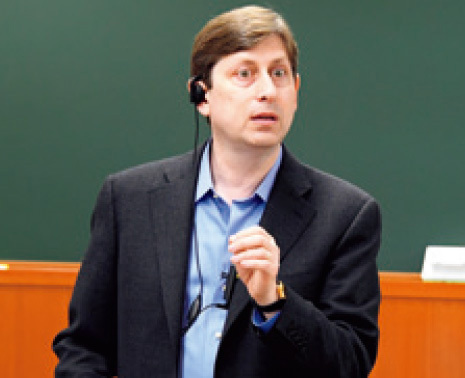
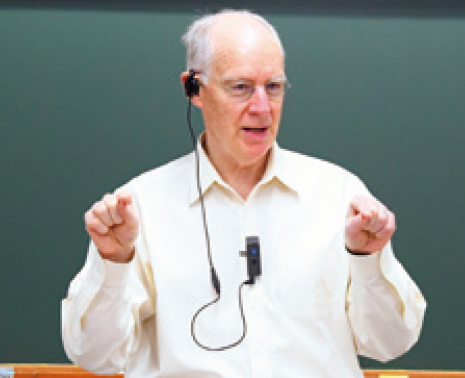
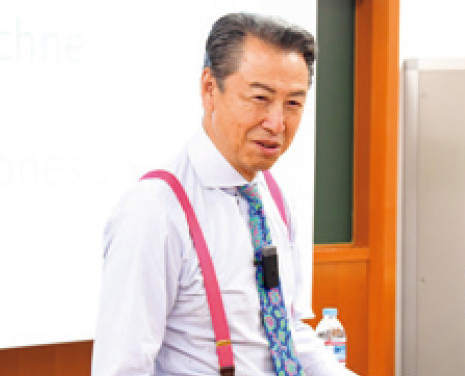
Top: David A. Moss in Macroeconomics Environment.
Middle: Joseph L. Badaracco, Jr. in Leadership.
Bottom: Hirotaka Takeuchi in Competitive Strategy.
Accordingly, the seminar focused on three areas: Competitive Strategy, Leadership, and the Macroeconomics Environment, presented in the form of case studies, rather than ordinary lectures. All the participants stayed at a hotel near the program site and spent a full one week, under the guidance of three professors of HBS, learning through the case study method. The globally relevant and diverse cases were drawn from difficult issues that confront executives in this rapidly changing business environment and addressed situations the participants have not previously confronted in their careers. The participants were encouraged to look at the cases from a CEO’s point of view, and trained to arrive at comprehensive solutions through speaking with the lecturers and other attendees.
The attendees expressed great satisfaction with the seminar, giving such comments as: “It made me aware that a leader must often make a decision even when there is no single correct answer,” “When I saw all the different approaches to the same case, my own perspective expanded,” and “We were able to deepen our networking with attendees from other businesses and regions.” Professor Hirotaka Takeuchi, one of the lecturers, sees Japanese women as flexible thinkers who nevertheless, once committed to a course of action, rigorously carry it to completion: “The impression I received from these women is that they will give the Japanese economy a big boost.”
When women are promoted to leadership positions, various new values take root in a company, opening up possibilities for human resource development and leading to a society that embraces rich diversity. As they listened to the speech, the women repeatedly nodded in agreement with Prime Minister Abe’s words. Their faces showed a strong resolve to put the lessons into practice and change their organizations, so as to lead Japan into the future.
[1] Abenomics Report 2019, January, 2019.
[2] From the Women Executives Information Website, sponsored by the Gender Equality Bureau Cabinet Office.
COMMENTS FROM TWO PARTICIPANTS
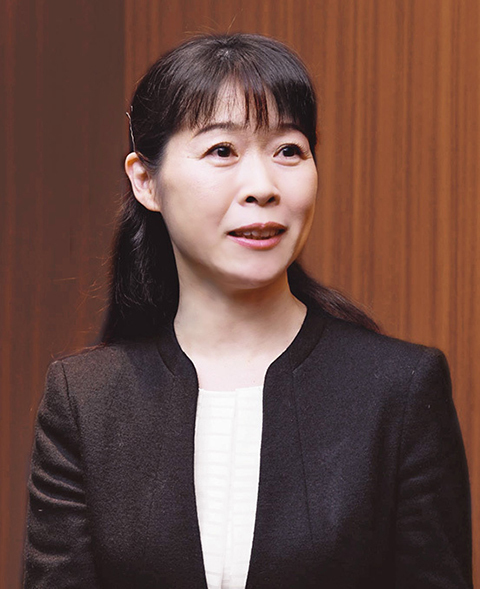
Tomiko Takeuchi
Mazda Motor Corporation
The lessons taught by the three lecturers, each an expert in his field, were both inspiring and enlightening. I learned that in decision-making, a leader cannot expect to find a single correct solution, and business cannot survive unless it is useful to society. I had never understood the macro economy, but now I clearly see how my work fits in the global context.
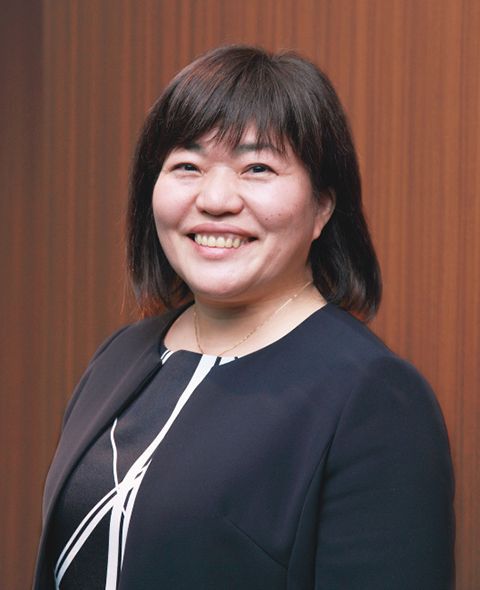
Yuka Hirose
SCSK Corporation
From the case study approach, I learned to assume that there will always be a number of different views on any given issue. The dynamics of using dialogue to find the best possible strategy is a valuable lesson. If women executives become more numerous and influential, more decisions will be made from woman’s view points, and that will create greater diversity in society.

























